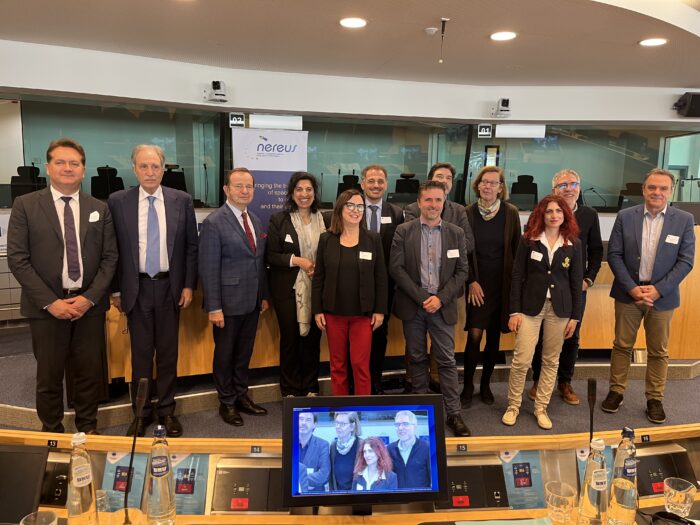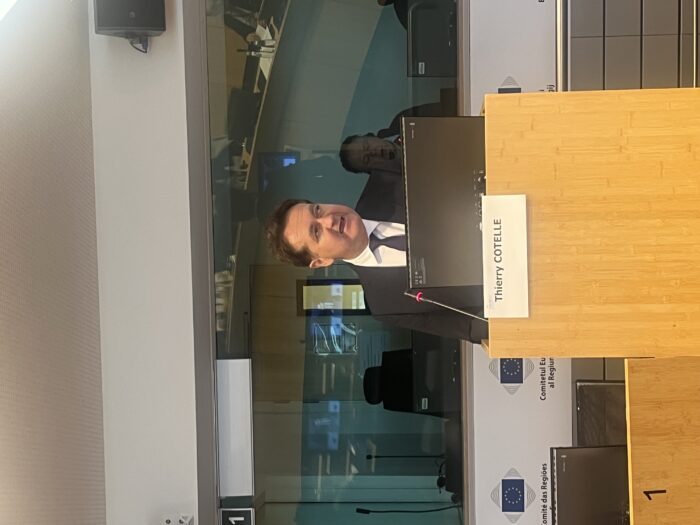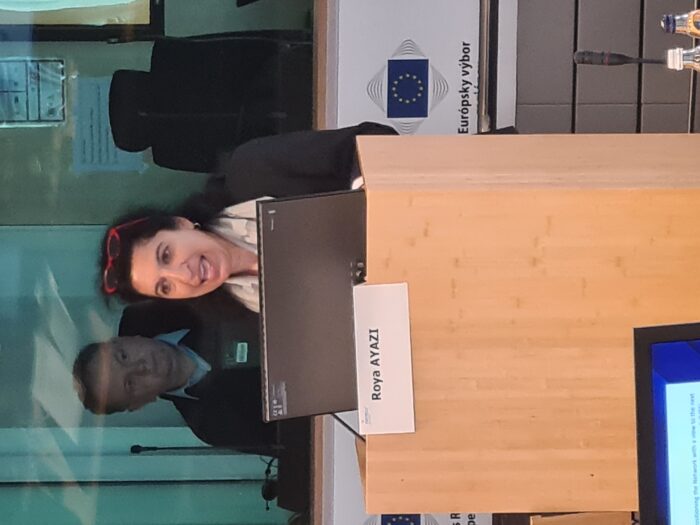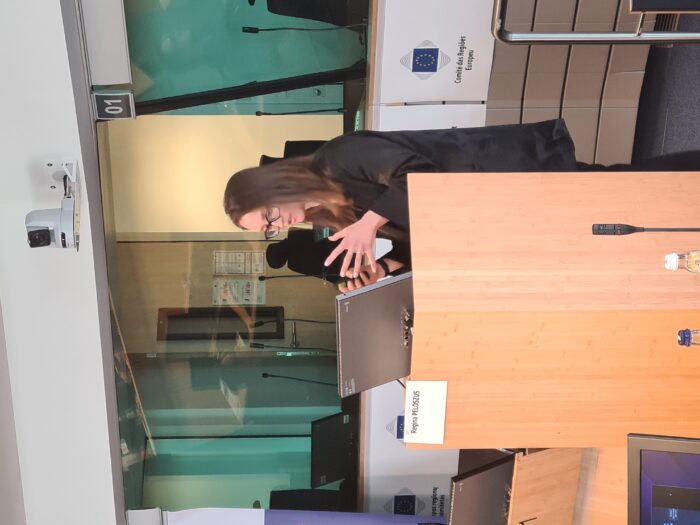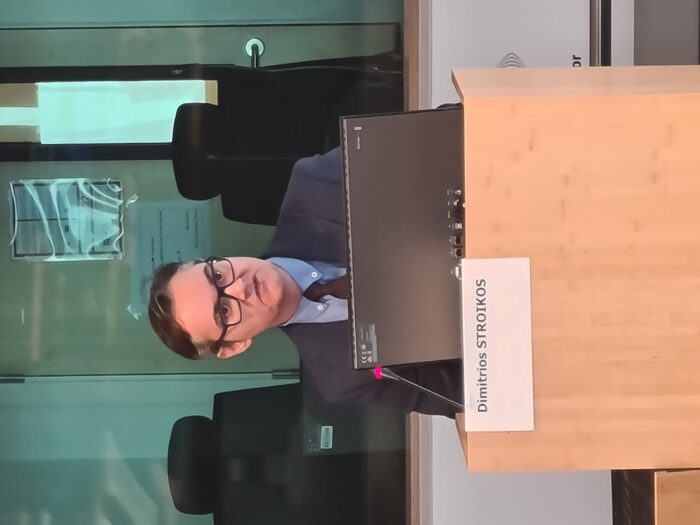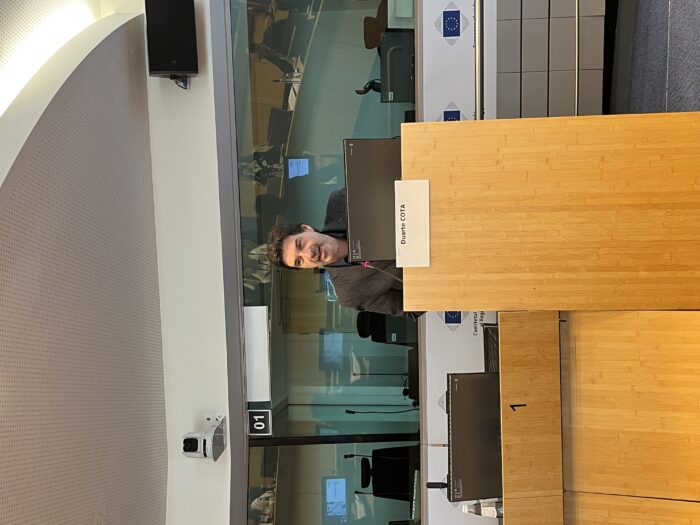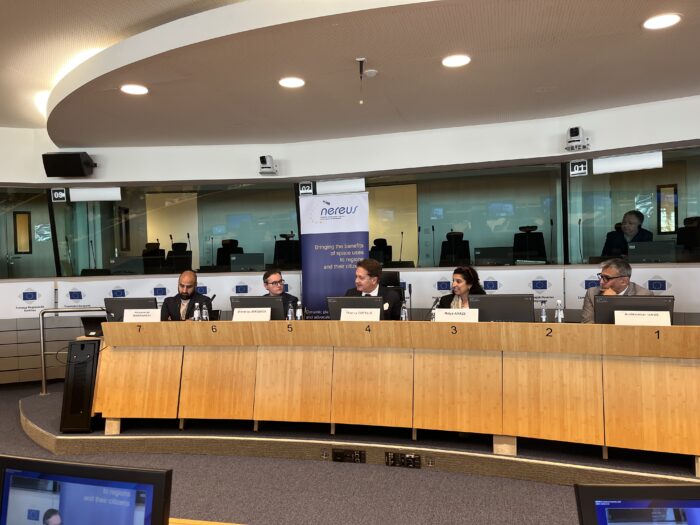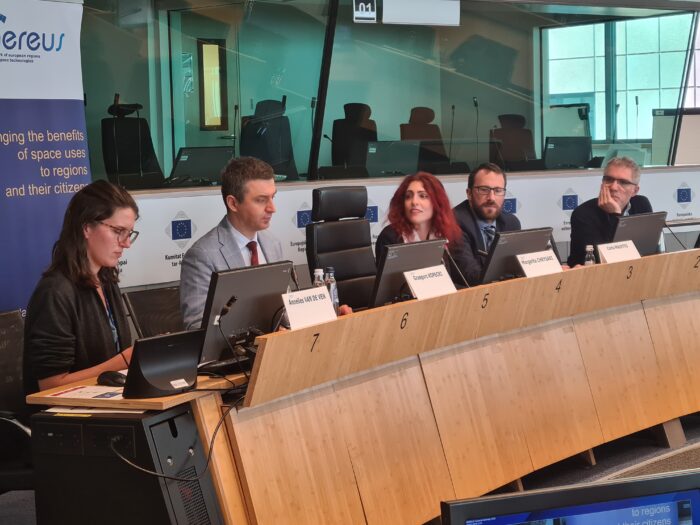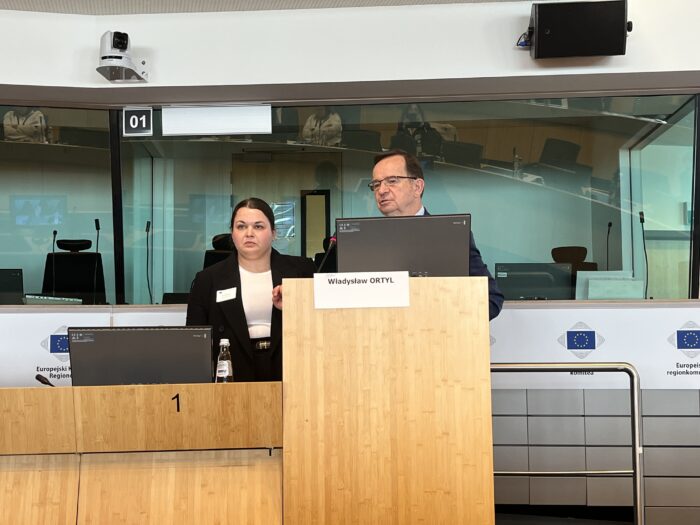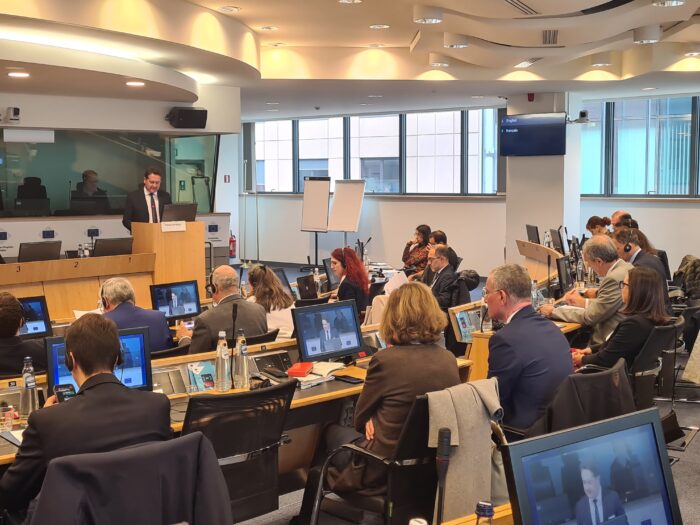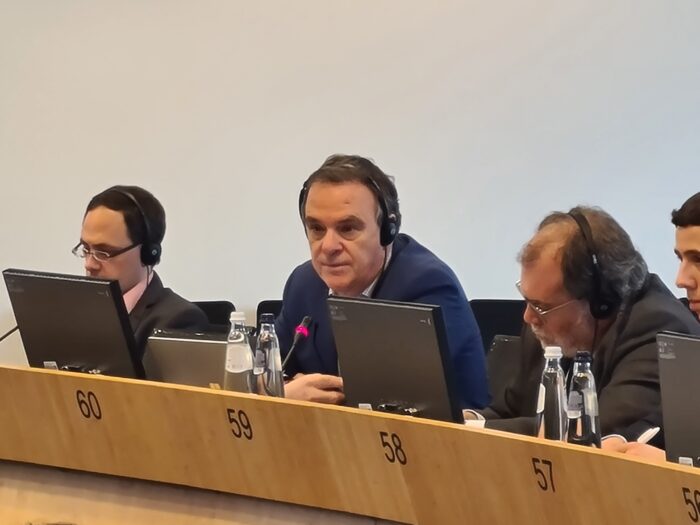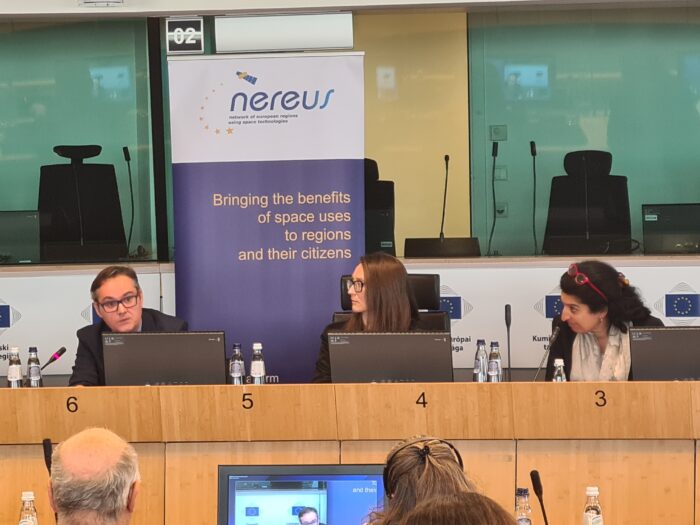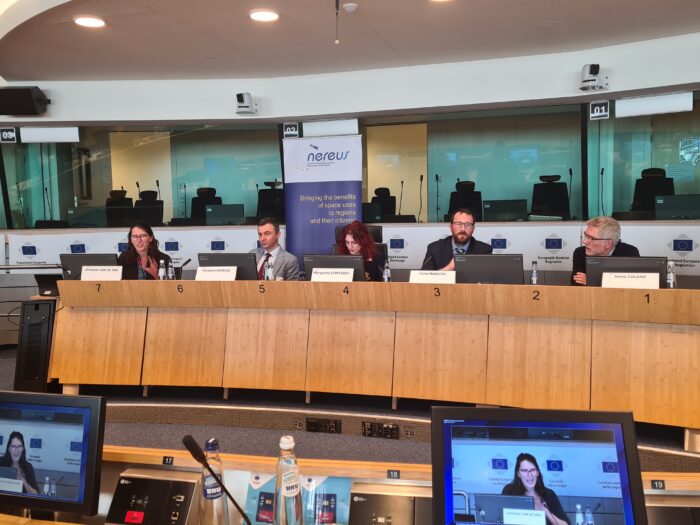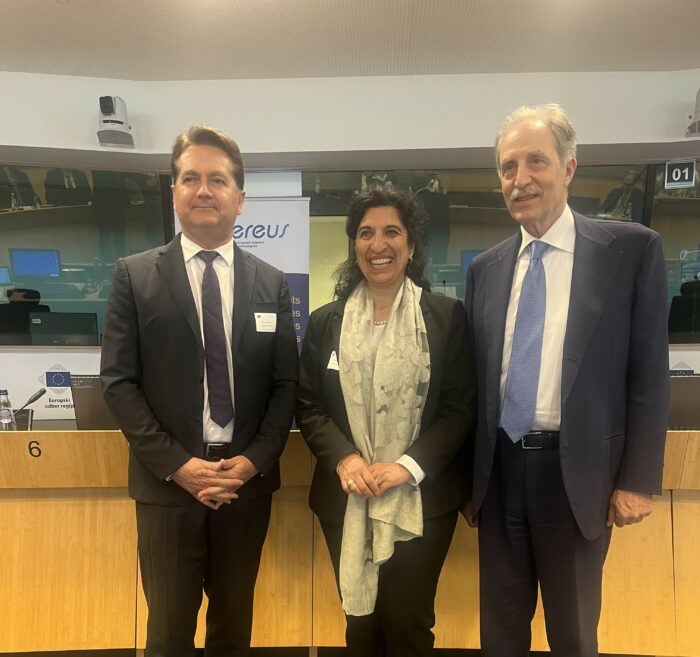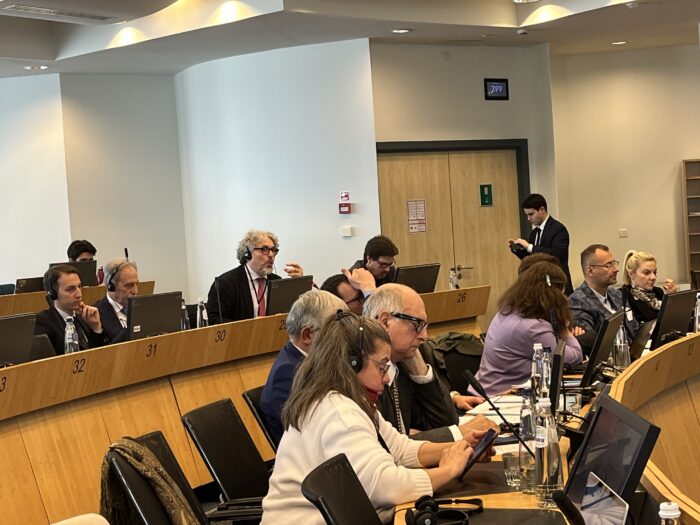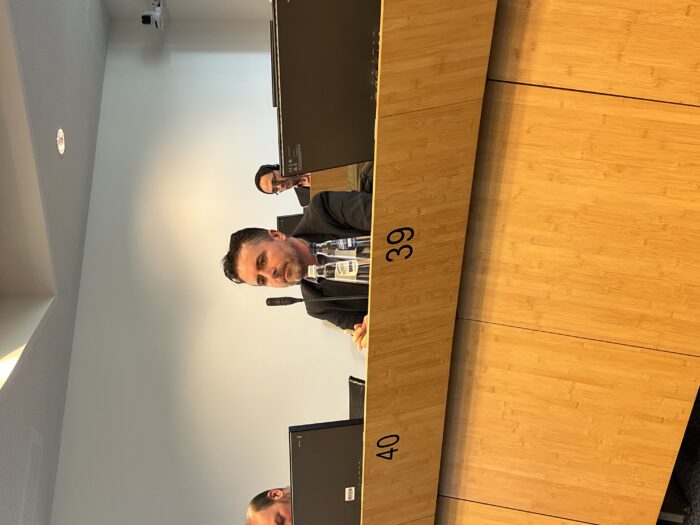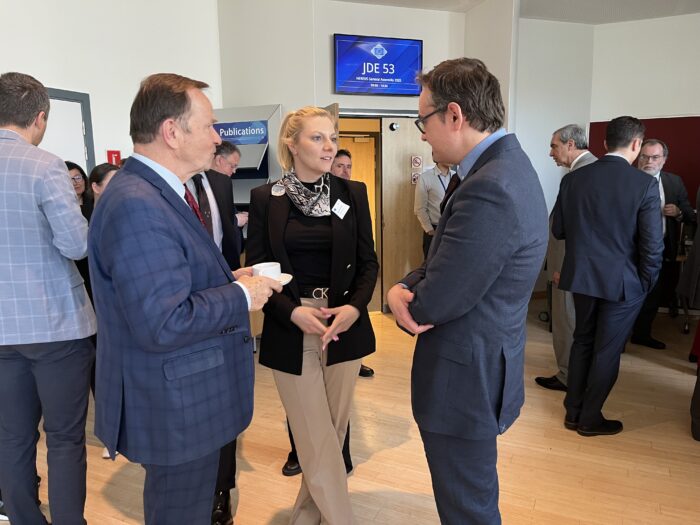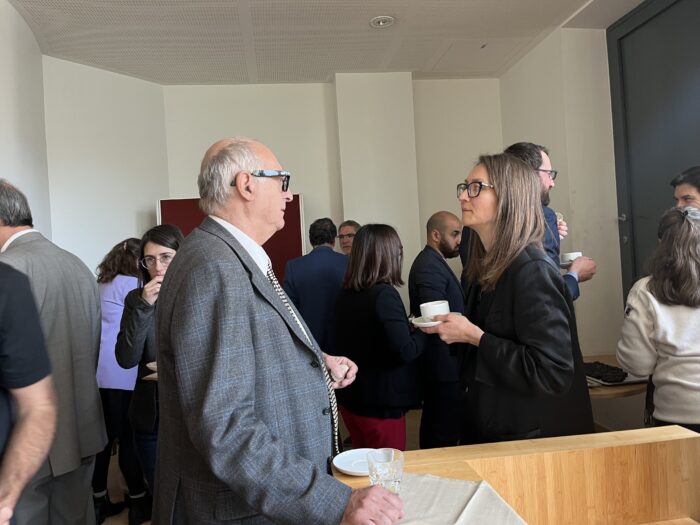The NEREUS General Assembly 2025 held on April 14th at the European Committee of the Regions welcomed approximately 60 participants, including space experts, regional and political representatives, EU officials, and members from industry and academia with translations in French and Polish. This year’s General Assembly featured two panel debates focusing on the European Space Sector and Strategy in a Global Context and its Impact on supra-national Governments/Public Authorities, Businesses and Research/academia at the Local and Regional Levels.
NEREUS President Thierry Cotelle opened the session by emphasizing the need for strategic positioning ahead of the EU Multi-Annual Financial Framework (2028–2032). He outlined key priorities for the next two years: strengthening network governance, attracting new partner regions, integrating satellite data into regional policies, and fostering the development of strategic technologies aligned with regional priorities.
Ms Roya Ayazi, NEREUS Secretary General, presented the latest NEREUS activities from 2024 with an outlook to 2025/26 and launched the discussion on the statutory affairs for 2025). Building on President’s Cotelle opening remarks, Ms Ayazi explained that NEREUS aims at shaping the next MFF (2028–2034), and its growing policy engagement in two keyways: first, through contributions to EU consultations on competitiveness and civil protection; and second, by submitting a position paper on the European Water Resilience Strategy (slides 12 & 14). Water, a shared priority, was also a central theme at the 2024 Toulouse symposium, where over 25 best practices were presented by member regions. In addition, Ms Ayazi warmly welcomed the newest members of the network: one new Full Member—the Canary Islands—and two new Associate Members—Ignatianum University in Cracow (Malopolska) and Rzeszow University of Technology (Podkarpackie).
Regina Peldszus from EEAS presented on “Space Security: Global Challenge – Regional Intersections,” highlighting space as a contested strategic domain. She discussed the EU’s Space Strategy for Security and Defence (2023), emphasizing the need for enhanced space resilience, threat analysis, and international partnerships. Peldszus stressed the importance of Space Situational Awareness (SSA) and Space Domain Awareness (SDA) for crisis response and EU defence. Looking ahead, space will remain central in EU security initiatives, including the EU Space Act and the White Paper on European Defence.
Dr. Dimitrios Stroikos discussed the global dynamics of space activities, emphasizing geopolitical rivalries, militarization, and the commercialization of space. He highlighted the growing regionalization of space and Europe’s strategic weaknesses, including fragmented space efforts and limited autonomy. Stroikos stressed the importance of regional networks like NEREUS in shaping space policies and promoting innovation. He called for a combined top-down and bottom-up approach to strengthen Europe’s role in global space governance and ensure its space ambitions align with a multipolar world.
Important points of the GA discussion were the presentation of the 4th European Symposium by NEREUS regions, “New Space for Multiple Challenges: Resilience & Sustainability,” by Duarte Cota, NEREUS Board Member, to be held on the 02nd/03rd October 2025 in Ponta Delgada, São Miguel Island. The event will focus on how space-based solutions can address key challenges in Civil Protection, Blue Economy, and Defence & Security. A call for contributions is open until June 16, 2025, for regional stakeholders to share best practices. The 2026 edition will be hosted by the Emilia Romagna region, featuring a venue hosting the European Centre for Medium-Range Weather Forecasts (ECMWF).
On a different note, the new Management Board has been elected. President Cotelle has been re-elected for a second term, extending his leadership through 2027—a strong signal of continuity and commitment to NEREUS’s strategic vision and growth. The renewed Board reflects a significant strengthening of the network’s political dialogue, with one-third now composed of elected regional representatives. This includes President Cotelle himself, along with NEREUS Vice-Presidents: President Vito Bardi (Basilicata), Secretary of State Tobias Gotthardt (Bavaria), and Marshal Władysław Ortyl (Podkarpackie), all bringing high-level political influence and visibility to the network’s activities. The rest of the Board comprises senior regional officials, directors, and experts who represent key institutional players, innovation clusters, and strategic regional initiatives. This strong mix of political leadership and technical expertise equips the Board with the full spectrum of capabilities needed to steer NEREUS toward even greater impact (link).
Panel Debate I, “Impact on Supra-national Governments / Public Authorities and Business Sector,” led by Roya Ayazi, NEREUS Secretary General, focused on Europe’s role in space amid global competition. Thierry Cotelle, NEREUS President and Regional Councillor of Occitanie, discussed local authorities’ contributions, emphasizing Occitanie’s space initiatives. Anilkumar Dave, Advisor to the Veneto Region on space economy, highlighted regional cooperation in revitalizing the Veneto space ecosystem. Dr. Dimitrios Stroikos, Head of the LSE IDEAS Space Policy project, critiqued Europe’s fragmented space policy and called for cohesion. Mohammad Iranmanesh, Managing Director of Constellr Belgium S.A., shared insights on how regions support start-ups’ internationalization and foster space innovation.
Panel Debate II, “Impact on Research and Academia,” led by Margarita Chrysaki, NEREUS Communication, Policy, and Project Officer, explored the role of research institutions and universities in Europe’s space strategy. Josep Colomé from the Institut d’Estudis Espacials de Catalunya emphasized academia-industry links for innovation. Grzegorz Kopecki from Rzeszow University stressed the need for funding mechanisms for research commercialization. Annelies Van de Ven, European Commission MSCA policy officer, highlighted mobility and collaboration through the Marie Curie Programme. Carlo Masetto, NEREUS Earth Observation Working Group Chair, discussed regional partnerships and the role of Earth observation in advancing space capabilities.
NEREUS Vice-President Marshal Ortyl, who hosted the event, thanked speakers, participants, and the management team for their contributions. He highlighted Podkarpackie region’s role in advancing space technologies and fostering innovation, particularly through its collaboration with the Polish Space Agency. Ortyl stressed the importance of interregional cooperation and innovation in strengthening Europe’s space sector.
Stay tuned and we invite all members to submit their best practices for the Regional Symposium by NEREUS regions on October 2-3, 2025 (link).
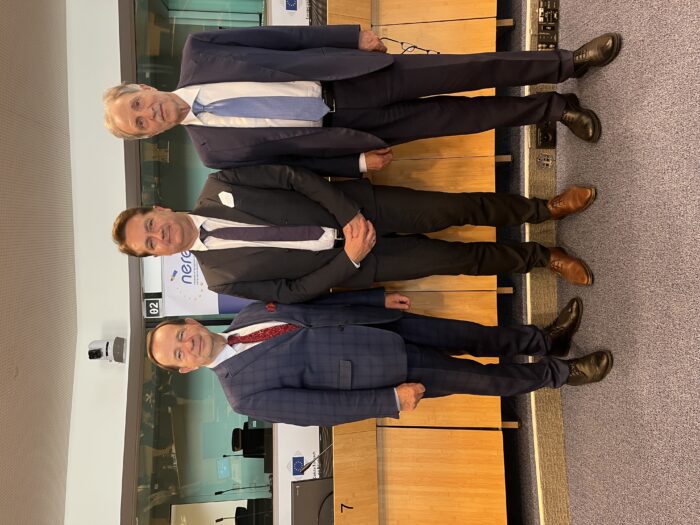
NEREUS President and Vice-Presidents. On the left: Marshal Władysław Ortyl (Podkarpackie), President Thierry Cotelle (Occitanie), President Vito Bardi (Basilicata)
Presentations:
NEREUS activities from 2024 with an outlook to 2025/26 by Roya Ayazi
“Space Security: Global Challenge – Regional Intersections,” by Regina Peldszus
“The global context of space activities and its impact on Europe” by Dimitrios Stroikos (after request)
Photos after request.

